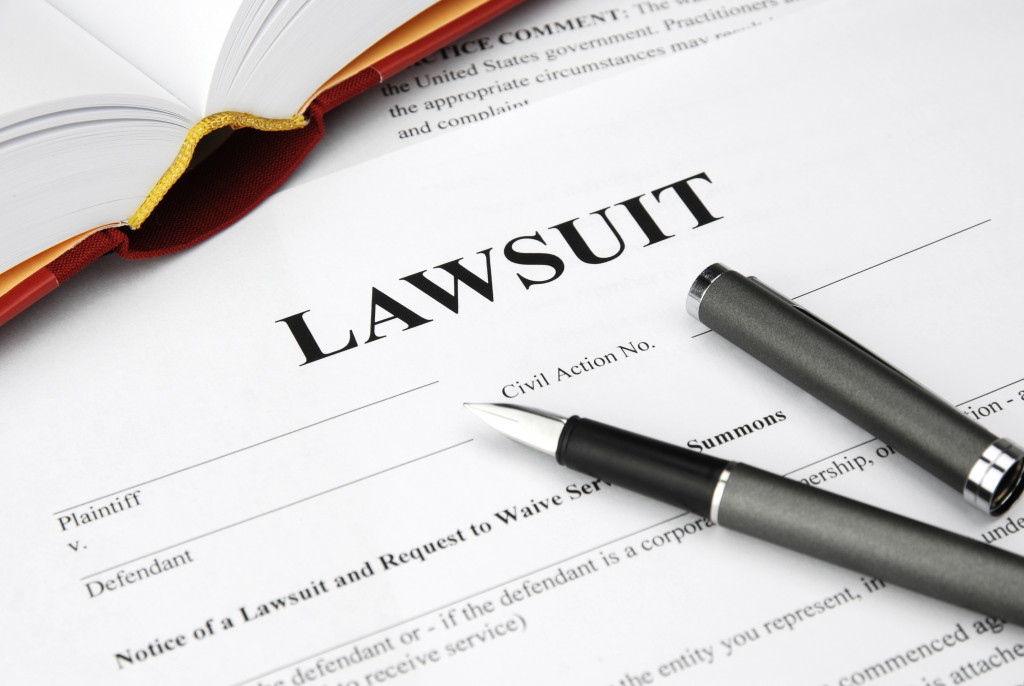- Identifying the plaintiff and their claims promptly when a business receives a lawsuit is essential.
- Businesses should assess potential financial liabilities or reputational damage associated with the case.
- Alternative Dispute Resolution (ADR) strategies allow businesses to address disputes more efficiently and cost-effectively.
- Consider settlement options when your business receives a lawsuit to minimize fees and liabilities while protecting your reputation.
Receiving a lawsuit can be one of the most frightening experiences for any business owner. It can disrupt your operations, damage relationships with customers and vendors, and result in costly legal fees. Worse yet, it could lead to financial losses or even bankruptcy if you don’t know how to handle the situation appropriately.
Fortunately, understanding what to expect when your business receives a lawsuit can help you prepare for the worst while allowing yourself to protect your interests. This article will discuss some of the common steps you should take when facing a lawsuit so that you are prepared to handle it effectively.
Identify the Plaintiff and Claim
When your business receives a lawsuit, it is essential to identify the plaintiff and the claim correctly. Every case has specific details for the defendant to respond to and address promptly; if misconceived or misidentified, it can cost your business additional time and money. You must ensure that all the designated parties are noted, such as any real estate trustees or witnesses involved.
Additionally, it is wise to expect delivery from a reputable process server who can ensure you have all the information before taking any necessary legal action. The importance of this step must be considered – identifying the plaintiff and their claims accurately sets you up for success in your defense strategy should litigation proceed.
Prepare to Defend Your Company
A business needs to be prepared for any legal action taken against it. When a lawsuit is filed, the company must take steps to prepare for the case as soon as possible. Doing research on the relevant laws, identifying all key personnel and documents that can potentially be used during discovery, and understanding how to protect privileged information are some steps you should take.
Taking proactive measures might help a business avoid costly litigation in the long run. Additionally, an experienced attorney overseeing the entire process – from identifying evidence to drafting affidavits and creating relevant strategies – will ensure that the company’s best interests are met.
Try to Minimize Damage
Here are some strategies that businesses can use to minimize damage and fees associated with litigation:
Assess Any Financial Liability or Risk of Reputation Damage
Assessing any financial liability or reputation damage associated with a business lawsuit is essential in determining the best course of action. Careful examination of potential costs and damages is usually the initial step to understanding how a dispute needs to be handled.
Companies should aim to determine all likely liabilities. This includes legal fees, monetary losses, and unforeseen reputational risks that could arise from the lawsuit. It is crucial to effectively manage any possible risks related to the matter to successfully protect long-term objectives such as brand trust and customer loyalty.
Utilize Alternative Dispute Resolution (ADR) Strategies When Possible
ADR is an integral part of handling a lawsuit when it is received. By utilizing these strategies, businesses have an opportunity to address the issues between parties in a more efficient, cost-effective way. It also allows disputing sides to agree on their terms instead of having a resolution handed down from the court.
Moreover, by incorporating alternative dispute resolution techniques, each side can explain its perspective and ensure that the other party is aware of its potential consequences. More importantly, utilizing ADR strategies can often resolve conflicts without leaving any lingering resentment between those involved or opening up any more significant legal disputes in the future.
Consider Settlement Options If Necessary

Settling a lawsuit is never easy, but it should always be carefully considered if necessary. It is essential to take the time to properly explore settlement options when your business receives a lawsuit, as doing so can help you minimize fees and liabilities while also protecting your reputation.
Working with an experienced attorney can provide invaluable advice when deciding whether or not to settle and can help ensure that any potential settlement terms are reasonable for both sides involved. Furthermore, settling a lawsuit quickly often allows businesses to maintain positive relations with their customers or other organizations, leading to increased trust and overall satisfaction in the long run.
Prepare for a Trial, if Needed

When facing a lawsuit concerning your business, it is essential to take the necessary steps to prepare thoroughly for your upcoming trial. Being well-prepared can make all the difference in positively affecting the case’s outcome. First, research which type of claim or legal action is being made against your business and familiarize yourself with applicable laws and procedures.
You should also secure relevant documents soon after being served a court summons or lawsuit so that you can avoid missing any applicable deadlines for filing responses. Lastly, you may consult an attorney or industry experts to gain insight into their experience that could help shape your strategy for defending your interests in this particular trial.
These are some steps you should take when your business receives a lawsuit. Being fully prepared and aware of what to expect can help you protect your company`s interests in the long run by avoiding costly litigation, minimizing damages, and ensuring that any settlement terms are reasonable.

